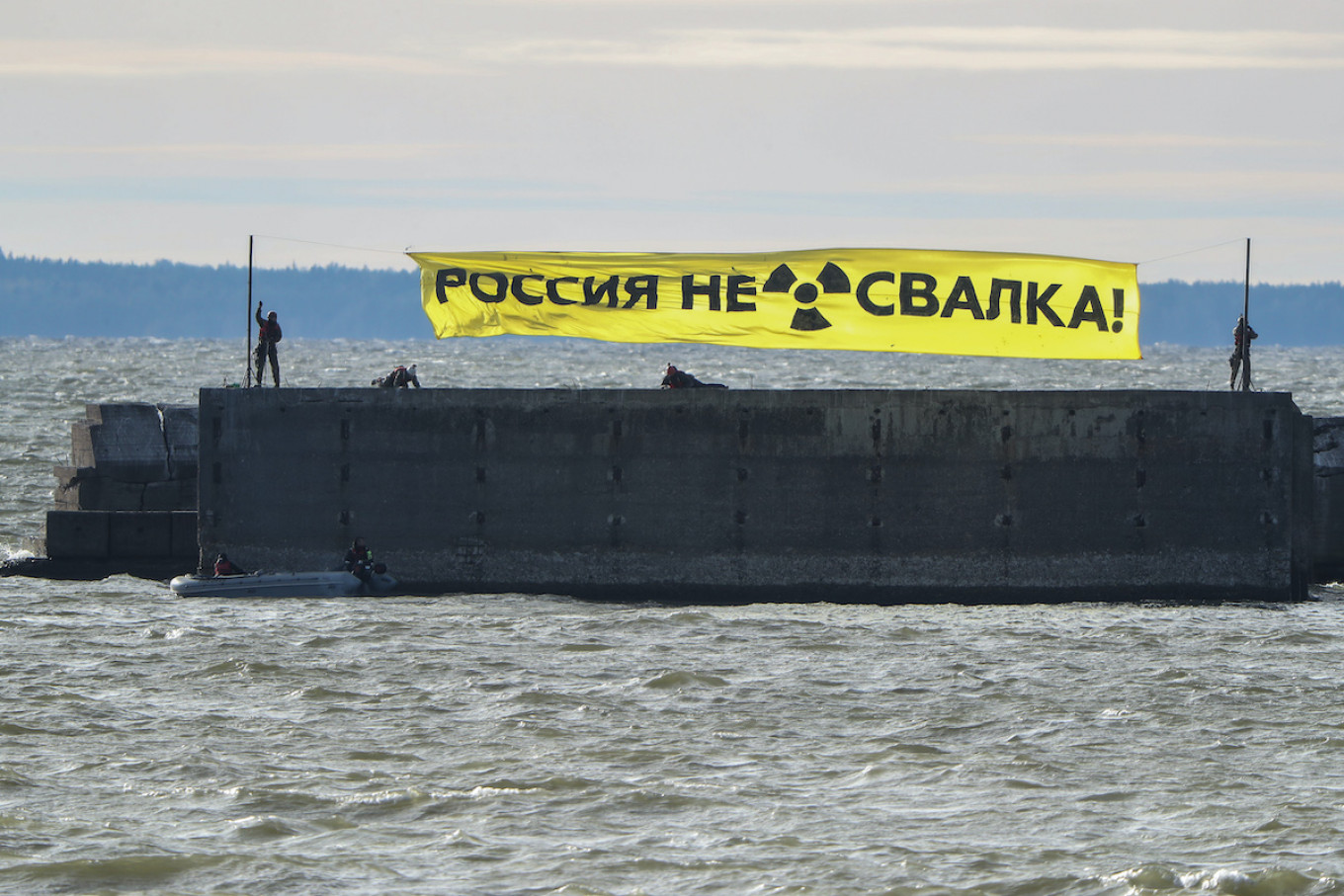
A series of nuclear byproduct shipments to Russia from Germany is likely importing more than officially declared, Greenpeace Russia said Tuesday.
European enrichment firm Urenco resumed exports of uranium hexafluoride, a byproduct known as “tails,” last year after a 10-year pause initiated by Russia’s state nuclear agency Rosatom. The shipments have sparked outcry from environmental activists, who say importing nuclear waste is illegal and threatens human and environmental safety.
The latest batch of “tails” to arrive at Russia’s northern port of Ust-Luga could contain up to 900 metric tons of uranium enrichment byproducts instead of the declared 600 tons, Greenpeace energy campaigner Rashid Alimov told the Sever.Realii news website, citing documents shared by German activists.
From 2019-2022, Urenco plans to ship a total of 12,000 metric tons of uranium tails from the German city of Gronau to Russia, though this number is likely higher in reality, Greenpeace Russia said.
The uranium hexafluoride is transported by train from Ust-Luga to a storage facility at the Ural Electrochemical Combine plant located 70 kilometers north of Russia’s fourth-largest city of Yekaterinburg.
Rosatom has said the imported uranium tails will be recycled, with the resulting uranium-235 sold back to Germany and any other remaining materials used in fast nuclear reactors that are not yet built.
In a statement to The Moscow Times, Rosatom said it is working alongside nuclear regulators and international watchdogs to ensure “the highest standards of safety” in its operations. It has also launched an expert panel on depleted uranium processing that includes leading scientists and members of environmental groups.
“Rosatom is the world’s leader in fuel reprocessing and deploys state-of-the-art technologies aiming at making nuclear energy virtually waste-free,” a Rosatom representative said. “Nuclear energy is absolutely vital to fight climate change and saves thousands of lives every year as it prevents vast amount of harmful emissions by replacing highly polluting fossil fuel-based ‘dispatchable’ energy sources such as coal and lignite. We are absolutely convinced that fuel reprocessing works must go ahead to ensure that our net-zero future, unthinkable without nuclear energy, is achieved in the most sustainable way.”
While the final tails shipment under Unerco and Rosatom’s current contract is expected to be conducted in October, Greenpeace said that future cooperation plans between the two agencies mean more uranium hexafluoride will likely be imported to Russia.
NGOs and lawmakers from Russia, Germany and the Netherlands unsuccessfully lobbied German and Russian leaders in June to end the shipments.
Greenpeace estimates that Russia already stores 1 million metric tons of uranium hexafluoride.
